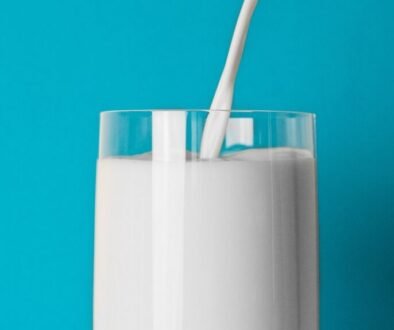Foods to Avoid That Can Disturb Your Hormones
Hormones are essential for controlling a variety of physiological processes in our bodies, which are highly tuned machines. Hormones are chemical messengers that regulate everything from our growth and reproductive processes to our metabolism and mood. However, certain meals have the potential to disrupt the delicate hormonal balance in our bodies, which can lead to a variety of health issues.
Let’s look at some popular foods you should avoid if you want to keep your hormone levels in check. The best gynecologist in Lahore has offered a list of these meals.
1- Sugar and Refined Carbohydrates
Sugar and processed carbs are some of the most common culprits of hormonal balance disruption. Sugar-rich foods, like sodas, candy, and processed snacks, quickly raise blood sugar levels. In turn, this causes the hormone insulin, which controls blood sugar, to be released. However, excessive sugar consumption can cause insulin resistance, in which cells no longer react positively to insulin. This syndrome, which is a defining feature of type 2 diabetes, has the potential to interfere with other hormones as well, including cortisol, which regulates stress responses.
White bread, pasta, and rice are examples of refined carbs that can have a comparable impact on blood sugar levels. These foods don’t include the fiber and nutrients that are present in whole grains, which results in unstable insulin levels and hormonal dysregulation.
2- Soy Products
Tofu and soy milk are two soy products that are frequently touted as healthy substitutes for animal-based protein sources. However, soy includes substances known as phytoestrogens that act similarly to estrogen in the body. Although excessive consumption of phytoestrogens might upset hormonal balance, especially in women, they can offer certain health benefits. Due to its interference with the thyroid hormone, a high soy intake has been linked to menstrual abnormalities, reproductive problems, and even thyroid issues.
The use of soy in moderation can contribute to a healthy diet, but an overreliance on soy-based foods might cause hormonal imbalances.
3- Dairy Products
Although dairy products are a frequent staple in many diets, they can potentially cause hormone-related problems. Due to the fact that they are made from pregnant cows, the majority of dairy products contain hormones, including progesterone and estrogen. These hormones can upset a person’s hormonal equilibrium if they consume them.
Additionally, dairy products might stimulate the body’s synthesis of the growth hormone IGF-1. IGF-1 overproduction has been linked to hormonal abnormalities and an increased risk of several malignancies. Consider converting to plant-based substitutes like almond milk, coconut milk, or soy milk if you are concerned about the hormonal impacts of dairy.
4- Processed and Fast Food
Fast food and processed foods frequently have high levels of harmful fats, artificial additives, and preservatives. The hormonal balance might be upset by these foods in a number of ways. Trans fats, which have been connected to insulin resistance and inflammation, are frequently present in them. Furthermore, eating too many processed and fast foods might increase the risk of developing obesity, which is closely related to hormonal abnormalities, particularly insulin resistance.
These meals frequently lack important nutrients and are heavy in empty calories, which can interfere with the body’s hormonal signaling, increase appetite, and promote overeating.
5- Caffeine
The stimulant caffeine, which can be found in coffee, tea, energy drinks, and some soft drinks, can alter hormonal equilibrium. While most people can normally get by with a moderate amount of caffeine intake, an excessive amount can have negative effects.
Cortisol, the body’s main stress hormone, is released when the adrenal glands are stimulated by caffeine. Caffeine consumption that is excessive or frequent can cause cortisol levels to rise over time, upsetting the equilibrium of other hormones like thyroid hormone and insulin. Additionally, it may have a negative effect on sleep, which is essential for preserving hormonal balance.
6- Artificial Sweeteners
In diet drinks and sugar-free goods, artificial sweeteners like aspartame and sucralose are frequently employed as sugar substitutes. However, some sweeteners may have a negative impact on the hormonal balance. Artificial sweeteners may damage the gut flora, resulting in metabolic abnormalities and altered hormone control, according to some research.
The intense sweetness of these alternatives may also activate the brain’s reward centers, leading to cravings for sweet foods and even overeating, which can further disturb the hormone balance. If you are also facing hormone disturbances, you can get a consultation from Dr. Zobia Jawad.
Conclusion
For general well-being, maintaining balanced hormone levels is essential, and the foods we eat play a big part in getting there. Avoiding or restricting meals high in sugar, refined carbs, soy, dairy, processed and fast food, caffeine, alcohol, and artificial sweeteners can help maintain hormonal balance and reduce the risk of hormone-related health issues. Focus instead on a balanced diet full of unprocessed, whole foods to promote optimum hormonal health and general energy. You may encourage hormonal balance in your body’s complex hormonal system and improve your health and well-being by making intelligent dietary decisions.



